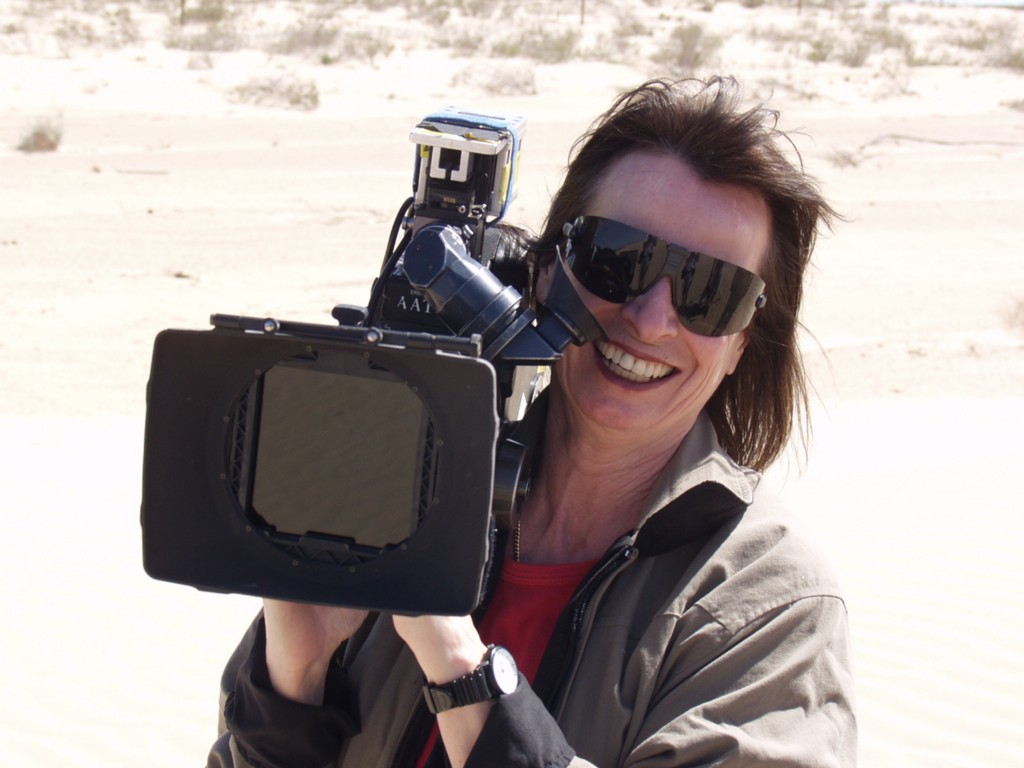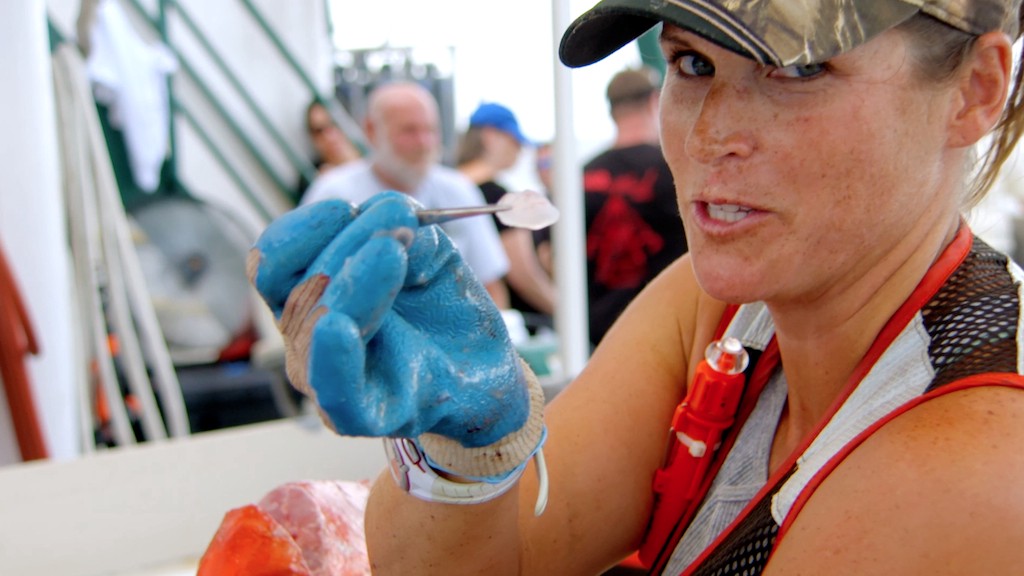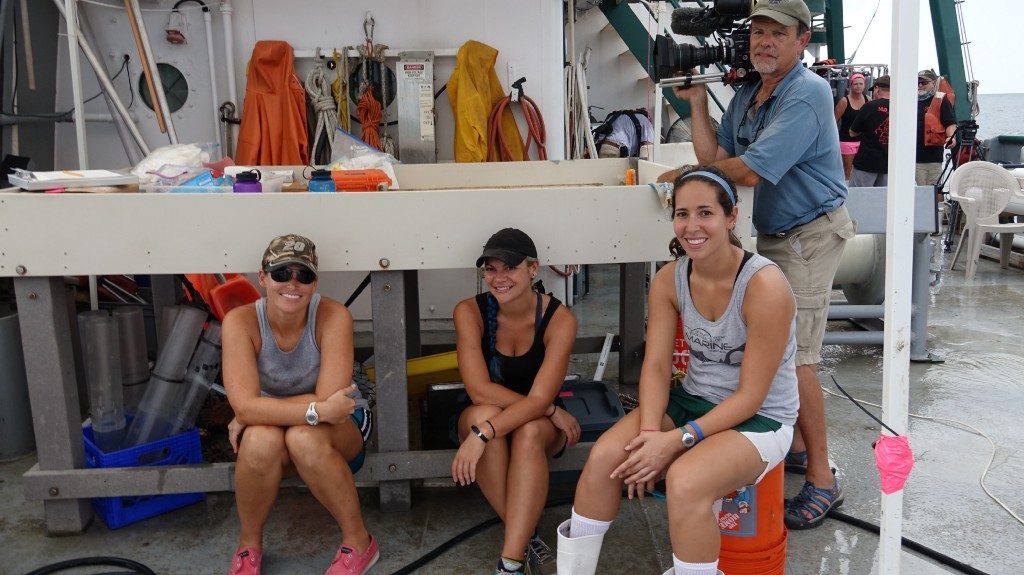
Years ago, when my husband, Hal, and I first arrived as young filmmaking partners in Washington, D.C., the first person I met was the wife of a fellow filmmaker. After talking to her briefly, it became clear that instead of recognizing me as the producer I was, she had automatically assumed that I was only my husband’s bookkeeper. (She would have thought the better of that notion had she seen my questionable bookkeeping skills.)
I was surprised by her presumption that I had to be “the woman behind the man” and by her inability to imagine something greater. After all, I hadn’t experienced any notable disadvantages in my career thus far. Hal had always been an enthusiastic, supportive partner and there were many other females in the industry. Still, the incident helped me realize that, when it came to perceptions of and roles for women in media, there was still plenty of work to be done.
[iw-blockquote]When it came to perceptions of and roles for women in media, there was still plenty of work to be done.
[/iw-blockquote]Shortly thereafter, I helped found the D.C. chapter of Women In Film. We started with about twelve people and now there are over 1,000 members. In the beginning, there were plenty of women in entertainment, but very few in top leadership roles at media companies; today there are many. These days, at always well-attended panels, I meet impressive, up-and-coming young women and established veterans alike.
Throughout the years since that fateful arrival in town, Hal and I have made over 225 documentaries, including two PBS series and three feature films, and each one has been rewarding in its own way. At the beginning, you try to puzzle out how you’re going to attack the topic. No matter how many films you make, it always feels daunting because you’re not generally an expert in the field you’re exploring. But I always see that as an advantage because I figure that what’s interesting to me as a novice, will be interesting to viewers too.
Our latest film, “Dispatches From The Gulf,” is no exception. The documentary, which is the 14th episode in our “Journey To Planet Earth” television series and premieres on April 20, investigates scientific research, discovery and innovation in the wake of the 2010 Deepwater Horizon oil spill in the Gulf of Mexico. This — one of the biggest disasters of its kind, ever — sparked the largest coordinated oceanic research effort in history, overseen by the Gulf of Mexico Research Initiative (GoMRI).

I wasn’t sure what we’d find when we boarded the first research vessel, the Weatherbird II, but I was pleasantly surprised to find it staffed with mainly PhD and post-doc students — many of whom were young women. And they weren’t just sitting back and handling the cerebral stuff either. Despite temperatures as high as 120 degrees, they were busy sawing through fish heads to examine brains and tossing sizable sharks overboard back into the water. This was tough manual labor, and they clearly loved every minute of being out there.
On another research vessel, I also met Dr. Samantha “Mandy” Joye from the University of Georgia’s Franklin College of Arts and Sciences, who is an expert in biogeochemistry and microbial ecology. I began to realize that this film, among other things, was going to afford me the opportunity to highlight women in science, a field that, at top levels, is often male-dominated.
Perhaps I shouldn’t have been surprised by this realization, as Rita Colwell (GoMRI’s Research Board Chair) is committed to and passionate about supporting women in the field. She rose to the top, despite many obstacles, to receive over 61 honorary degrees and multiple lifetime achievement awards. But I was still both unnerved and galvanized by some of the stories I heard once we started conducting interviews.
Joye herself recalled how, as a young person starting out, she told her boyfriend that she was going to apply to a PhD program, and he told her it was waste of time because she was a woman. Fortunately, she was smart enough to get her PhD anyway, and get rid of that guy.
Tamara Frank, who is a lead scientist at NOVA Southeastern University, was told that she should try to be a hairdresser instead of following her dreams. Even once she started studying, people suggested that she would be relegated to examining matter through a microscope, confined to a lab. Luckily, she envisioned and achieved much more.
There were many stories in that vein, and I related personally because, as a teenager, I had a guidance counselor suggest that I look for a job washing dishes and forget about thinking bigger. I wasn’t the only girl at school who she discouraged. (I only wished she’d been alive to see me receive an honorary PhD from my alma mater.) Like many of the formidable women I interviewed for “Dispatches,” I’ve always been driven to try harder when discouraged. I think that stubborn nature helps me as a filmmaker too: When you hear “no,” you have to figure out how to turn it into a “yes.”
When you hear “no,” you have to figure out how to turn it into a “yes.”
There’s still room for women in science — and filmmaking for that matter — to move up. That glass ceiling looms. And it’s beneficial when you are married to someone supportive, who is willing to, for instance, watch you head off on far-flung expeditions for long periods of time.
That said, as we head into filming our second Deepwater Horizon aftermath documentary — which will follow up on previous stories, but also focus more on human health, marine mammals and an international perspective — I am hopeful. In our travels, top male and female scientists alike seemed to be very encouraging of all their younger protégés. I suspect that more and more women will be taking over these vessels and making inroads in these fields of science.
“Dispatches from the Gulf” streams live on April 20 at 2p.m. and 7p.m. on the “Journey to Planet Earth” YouTube Channel.






